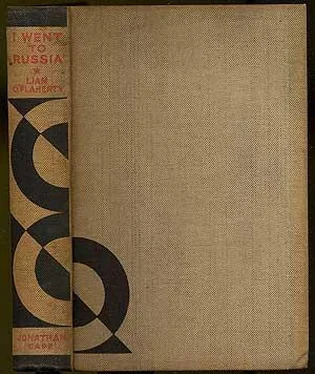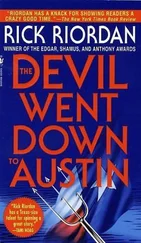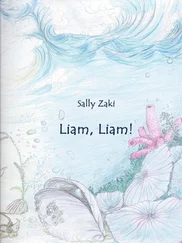‘That’s all rubbish,’ said Duranty, becoming a trifle indignant with me. ‘You are a disgruntled sentimentalist. And I don’t exactly get your point. If the Russians can teach all their children to read and write and do little sums in arithmetic within the next fifty years, I think they’ll have done wonders. The danger of having replicas of the Eton and Harrow match at Moscow or at Stalingrad in the immediate future is ridiculous. You see, the Soviet Union is not Moscow. It’s one-sixth of the world. And therefore. . . .’
I know, I know. I grant you that. I was merely trying to point out that we owe nothing to the Bolsheviks in the matter of social innovations. Take marriage for instance. People in Europe have been yelling about Bolshevik enlightenment for the past ten years. But I find the Russians much more puritanical in their sexual relationships than the English, the French, the Germans or the Americans. Granted that there may have been sexual debauchery after the Revolution, or very bright ideas about marriage among the highbrows at the present time, I find that the vast masses of the people still are just as reactionary about marriage as the masses all over the world. I have been told by ardent Communists here that the young women, when they are working in the factories, believe ardently in the Communal life and so forth, but as soon as they get husbands they begin to give their whole time to the little flat and are perfectly bourgeois in their greed for procuring a new arm chair, new chintz curtains, a new samovar. The fringe of the population that goes in for divorces and free love is just the same fringe that does the same sort of thing in the other countries I have mentioned. Indeed, on the whole, I find among the Russians the simplicity of peasants with regard to sex. I am certain that there is nothing new or socialistic about their attitude towards marriage. One would have to go to the heavy and cultured middle-aged women in England for that, examinations of complexes and companionate marriages and so forth. Here there are only primitive instincts, extreme delicacy, sentimentality; in fact, a very delightful, un-Marxian, pastoral chastity.’
‘But isn’t that all to the good?’
‘Certainly it is.’
‘Then what are you grousing about?’
‘Damned if I know.’
‘Have another drink. It’s just the nervous reaction from Russian life.’
We both laughed heartily.
‘Well!’ I said. ‘Do tell me what you think of it in any case. Having liquidated, as the Russians say, my own irritation with myself, I’d like to hear what you think.’
Duranty leaned back in his chair and said:
‘Did you ever read the life of Brigham Young?’
‘Yes,’ I said, ‘astonishing fellow. A small scale American Mahomet’.
‘Perhaps there is a resemblance between him and Mahomet,’ said Duranty. ‘Certainly there is a startling resemblance between him and the Bolsheviks. They both attempted to set up a government by priests. This is a clerical government. You might in the same way prove a resemblance between this and the Papacy, but Mormonism appears to be closer. Has it never struck you that the Russian Communist Party is an extremely religious and clerical organisation?’
After some thought I agreed with him.
‘But it’s amazing,’ he cried, becoming a trifle excited. ‘The longer I live here the more I am struck by it.’
‘Damn true,’ I said. ‘Coming down on the train from Leningrad I had a conversation with two Civil servants . . .’
I’m working out a theory,’ cried Duranty, ‘that Bolshevism is the real religious antidote to the materialism of the twentieth century. It seems ludicrous but it’s true. The rest of the world believes in Godless Russia, and yet Russia is practically the only country in the world where religion inspires the masses with an active enthusiasm. There is no other way of looking at Bolshevism than as a religion. It is now, in fact, more common to refer to it as Leninism, after its prophet. I think it’s very amusing and interesting. For instance, at the general congress of the Communist Party this year there is going to be a heated discussion about a slight change in the Soviet Koran, or Bible, the works of Lenin. It’s going to create almost a schism in the Soviet Church. Very probably new heretics may be burned at the stake or shot in the modern way.’
‘What is this change?’
‘Lenin has said that Soviet power in the villages is based on the poor peasant. Now they wish to say that Soviet power in the village is based on the collectivised peasant. It sounds trivial, but not more than the small points that caused schisms in the early Christian churches. If you examine the whole system of Bolshevist society you will find the same religious attitude towards life. Even their device, the sickle and hammer, is a form of mystical symbolism. Their ambition to convert the whole world to Communism or Leninism is in line with the apostolic mission of the Christians, causing them, even though they preached peace and goodwill, to massacre those who refused to become converted. Take the life of the high priests of Leninism, the Soviet ministers, heads of local parties and so on. As far as possible they live lives of absolute asceticism. Even the most severe of them, Djerjinsky the head of the police, was a fanatical Communist saint. I assure you it’s a remarkable attempt to achieve what the Christians failed to achieve.’
‘And do you think they’ll succeed?’
Duranty shrugged his shoulders.
‘I doubt it,’ he said. ‘If the Five Year Plan is a success and I have no doubt but that it will be a partial success and that eventually the vast natural resources of the Soviet Union, in spite of Soviet inefficiency and the opposition of foreign countries, is going to make Russia exceedingly prosperous. Then the high priests and the lesser Communist clergy will lose their hold over the masses. I suppose things will repeat themselves. Still it’s an interesting experiment.’
I’m interested to hear you say that,’ I said, ‘because I have maintained for years that Communism was definitely a new religion rather than a new social theory’.
‘Oh! But it’s a new social theory, too,’ said Duranty.
‘Only in so far as they have turned the whole of capitalist economy into one huge concern and then cut out the shareholders. It seems an attempt to run society by means of a civil service responsible to the government. But then the government, as you maintain, is a sort of a company with a great number of directors, who draw merely starvation salaries.’
‘But don’t you think that’s a great improvement on European and American methods?’
‘Obviously. It’s much more efficient and allows more scope for doing big things.’
‘Yes,’ cried Duranty enthusiastically. ‘This Russian life sometimes irritates me. I am sometimes revolted by their fanaticism and their inefficiency, but . . . My God! When one compares this intelligent government to the idiocy at home! It’s sad to think that we are doing nothing at home, just rotting away while these fellows are full of enthusiasm, full of hope for the future, working away like devils, trying to build up this rich, virgin country. The government knows where it is going. It has a plan. We have none. Muddle, muddle all the time.’
‘And then . . . when the Russians have got there, what happens?’
It is impossible to say. Anything might happen here.’
I feel that they are deliberately setting out to conquer the world, by necessity, that they are going to be forced to conquer the world in order to survive.’
‘I don’t believe that. The Bolsheviks are really pacifist. That is the funny thing about them. They are pacifist.’
‘But isn’t it only the Jews who are pacifist and religiously minded, Communist fanatics? They’ll get rid of the Jews and conquer the world. They have to. Like all people who make a machine of human beings they’ll be forced to use this machine, this army, for the sole work at which an army is useful, military conquest.’
Читать дальше












